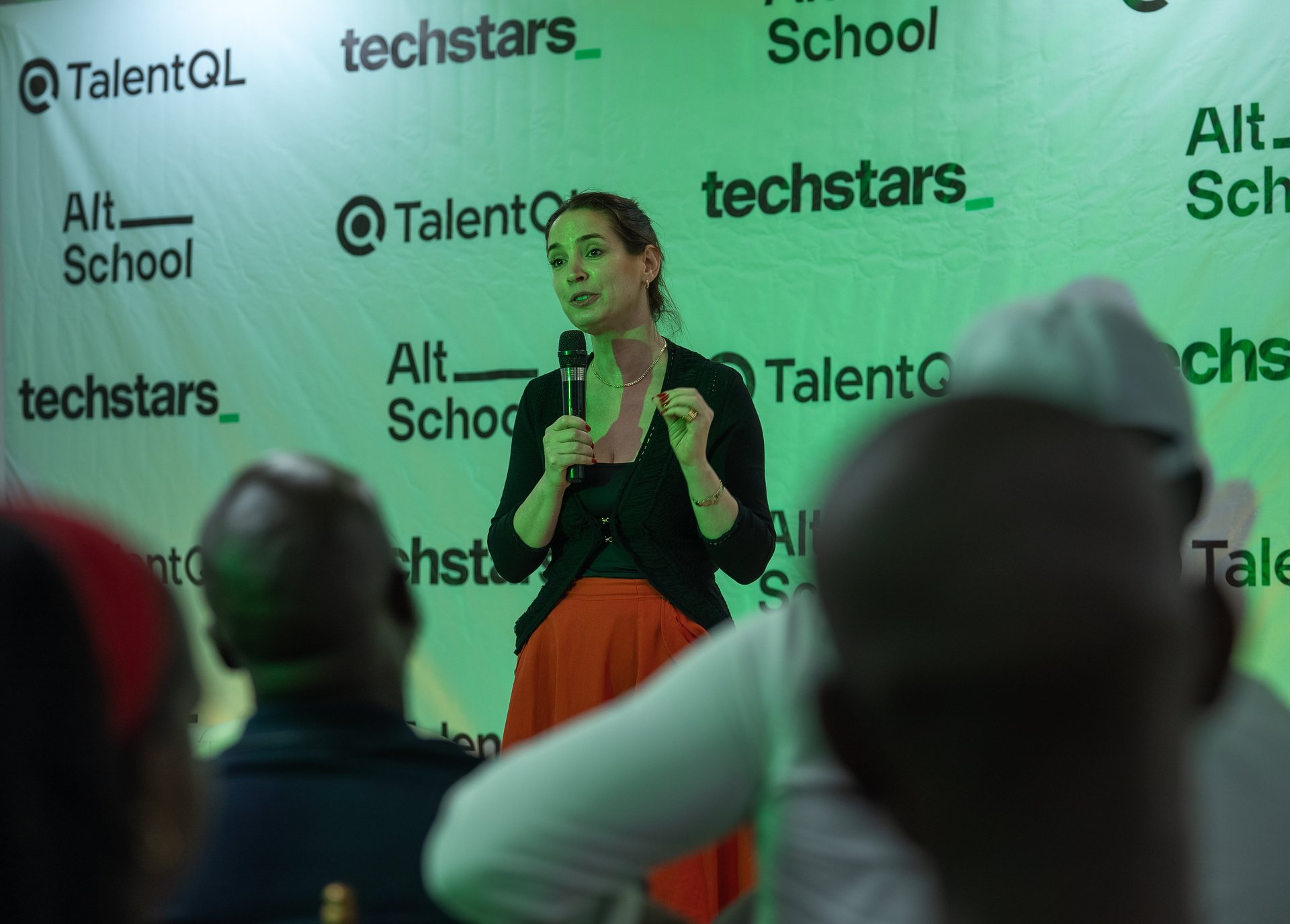Techstars is bringing its accelerator program to Africa
Techstars, the US accelerator program, will add Lagos to a network that includes New York, Toronto and other cities.

In June, MFS Africa bought Oklahoma-based Global Technology Partners in a cash-and-shares deal worth $34 million. It was, as the Financial Times described it, a rare instance of an African firm buying a US fintech company, underscoring the global ambitions of the continent’s tech innovators.
Investors in African tech are optimistic that more of these companies will be founded in the coming years, which is why many are keen on catching startups young at the pre-seed and seed stages. Accelerator programs, like the US-based Techstars, are often among the first to take a gamble on pre-seed startups. After years of hosting its programs from New York, Toronto, and London, Techstars will launch its first African accelerator in Lagos, Nigeria this year.
Quartz spoke to Maëlle Gavet, CEO of Techstars, when she visited Lagos in July to understand the company’s plans. The interview has been edited for length and clarity.
Quartz: What are Techstars’s ambition in Africa?
Maëlle Gavet: We’ve been in Africa since 2011 and have made investments primarily in Nigeria, Kenya, South Africa and some other places. African founders have gone to our accelerator programs in Toronto, New York, and London. But we started thinking last year about the best place to open our accelerator programs in Africa, and decided on four cities: Lagos, Nairobi, Johannesburg, and Cairo. We will start with Lagos, and luckily we found a partner in ARM, a Nigerian investment management firm. We’re now in the process of making the program start in December. We’ll run it for a few years with ARM and figure out how to expand to the rest of the continent.
Quartz: Have you decided on the structure of the program?
Gavet: If it were all up to me, we would make a few hundred investments in Africa every year, but we’re not deciding now; we’re looking for partners. There are enough entrepreneurs and challenges requiring the application of the entrepreneurial spirit. I don’t need to be sold on the African market. The stage we are at now is how we enter in the best way possible, and right now we believe in working with partners because they understand the local market at a granular level. So, in Nigeria, ARM knows the financial infrastructure and regulators really well, and they have a pan-African strategy.
Quartz: Let’s take a step back. What does an accelerator offer to startup founders, apart from money?
Gavet: Most founders have not accumulated the knowledge and experience to be successful without help, and no one succeeds alone. We provide three things. The first is capital, and that absolutely matters to pay bills and run a company. The second is what we call programs and services which include the three-month program itself but also events, training, and other forms of support for strategy that our startups can access for life. Think of the accelerator program as a mini-executive MBA for entrepreneurs, helping a founder build a company with best-in-class practices. Lastly, it’s our network; I consider it the best when it comes to entrepreneurs in the world.
Quartz: What kind of entrepreneur are you trying to get into Techstars?
Gavet: We are looking for unstoppable founders, those who have identified a problem and are already doing so much to solve the problem that they are ready to spend 10 years of their lives on it. That’s a message we insist on a lot because given what’s happened over the last decade, some founders think they can build a startup today, be a unicorn in three years, and exit and be on the beach by year five. That doesn’t work.
We came to Africa because we are looking for African founders. We think there is a really large pool of unstoppable founders. And we have found that founders who have experienced hardship, who weren’t handed everything from birth, tend to be more resilient, innovative, and capable of thinking outside the box. We think there are a lot of these types of founders in Africa, and we want to help them succeed. We want them to make a lot of money for themselves and their families, because at the end of the day, this is about creating generational wealth.
Quartz: What sectors are you interested in?
Gavet: The ARM accelerator is focused on fintech and proptech [property technology], largely to leverage the firm’s expertise and connections. That said, I think there’s a massive opportunity to do more in healthtech, edtech, agritech, and foodtech. We want to expand our footprint to create other accelerators around these sectors.
Quartz: Will the Lagos accelerator be modeled after any of the existing Techstars programs?
Gavet: We have a global standard that ensures some commonalities between programs, and that’s important for founders because they will get the same level of quality in New York, Toronto or Lagos. We also understand that there are regional specifics. I don’t know Lagos well enough but something tells me that you don’t run a business here the way you run it in Los Angeles. That is why we will have a local team with a managing director for the Lagos Accelerator.
Quartz: What’s in it for Techstars?
Gavet: Money! We are an investment business that finds founders, nurture them with capital, resources, and networks so they build big companies. We have invested in 20 Nigerian companies, and a few of them are now worth well over $100 million. It’s money for the founders, for us, and the limited partners in our fund. The VC world tends to fish in the same tiny little pool, but we believe there’s a massive blue ocean out there and our job is to find the founders building Africa’s next unicorns.
